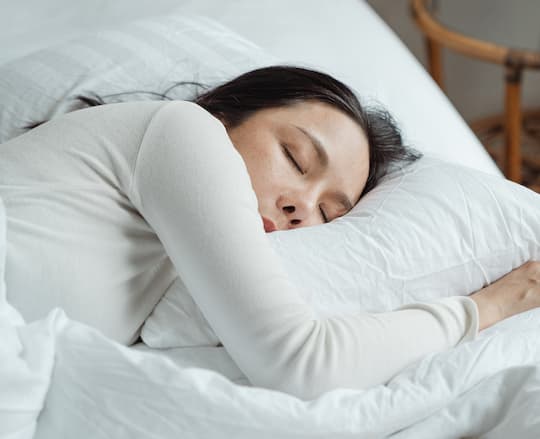Around one-quarter of people could have a deficiency in vitamin B12.
Poor sleep can be a sign of vitamin B12 deficiency, research suggests.
Deficiency in this vitamin, as well as other micronutrients, is linked to poor sleep quality and having to use medications to sleep by the study.
Researchers have found that deficiencies in niacin, magnesium, calcium and dietary fibre are all linked to short sleep.
More common signs, specifically of vitamin B12 deficiency, include pale or jaundiced skin.
This is a yellow tinge around the eyes and/or in the whites of the eyes.
Vitamin B12 deficiency has also been linked to nerve problems.
This may manifest as pins and needles or numbness, especially in the legs.
Other psychological symptoms of vitamin B12 deficiency include problems concentrating, depression, confusion and even forgetfulness.
It can be difficult to trace these symptoms directly to vitamin B12 deficiency as they can be related to a variety of other causes.
Around one-quarter of people may have a vitamin B12 deficiency.
Adults under 65 need around 1.5 micrograms of vitamin B12 per day.
Vitamin B12 is normally acquired by the body through diet.
Foods that contain vitamin B12 include dairy, liver, salmon and eggs.
Other good sources of vitamin B12 include poultry and low-fat milk.
Fortified breakfast cereals also contain vitamin B12.
The conclusions about diet and micronutrients come from a study that analysed data from the National Health and Nutrition Evaluation Survey, which regularly surveys many thousands of people in the US.
The study’s authors explain the results:
“…short sleep was significantly associated with the greatest number of nutrients; showing an inverse association with magnesium, niacin, vitamin D, calcium, and dietary fiber intake.”
The study also linked lower levels of vitamin B12 with worse sleep.
The study was published in the journal Current Developments in Nutrition (Ikonte et al., 2019).

